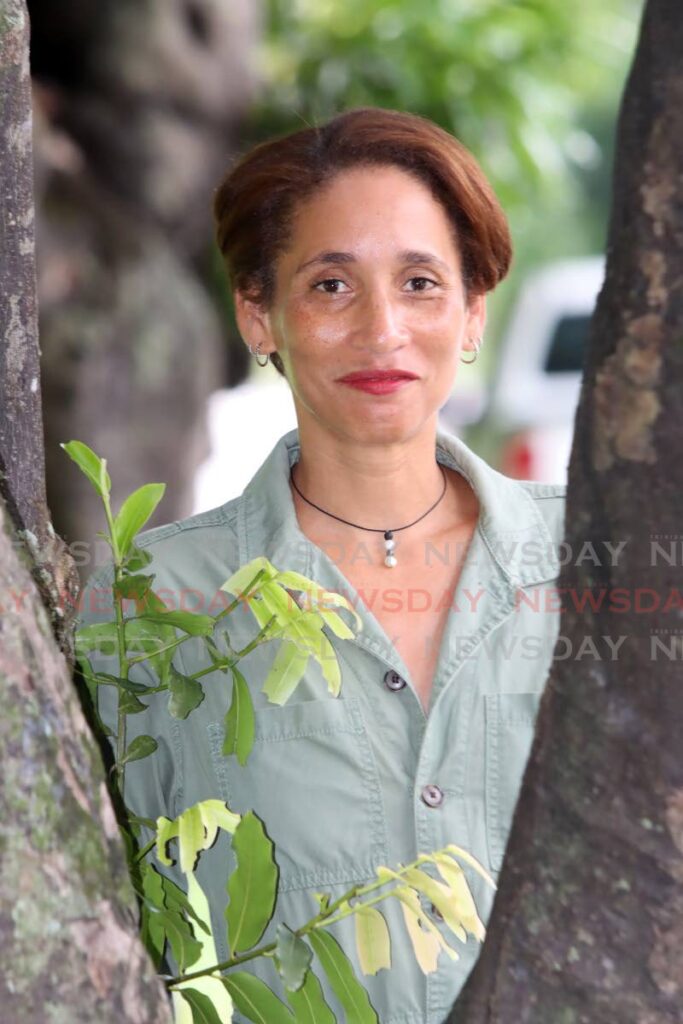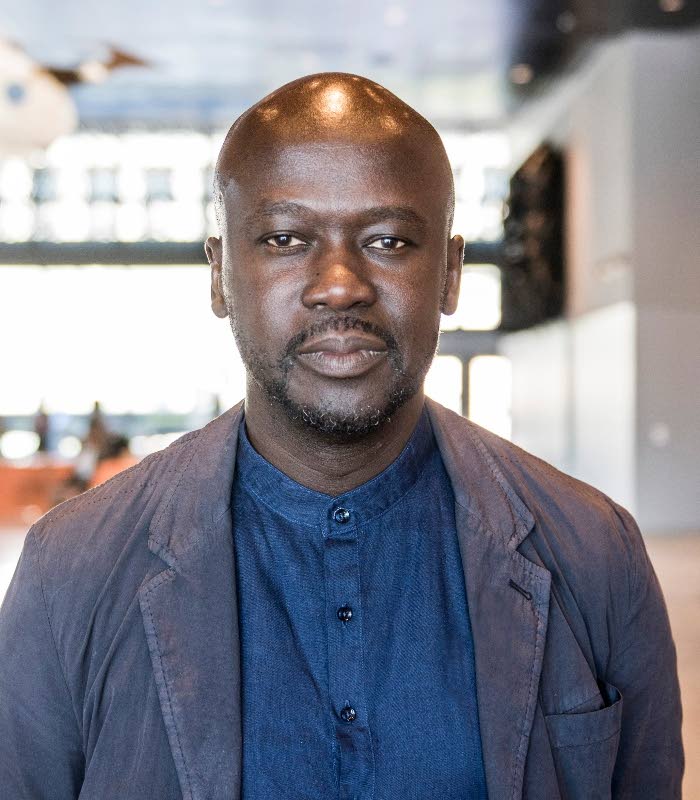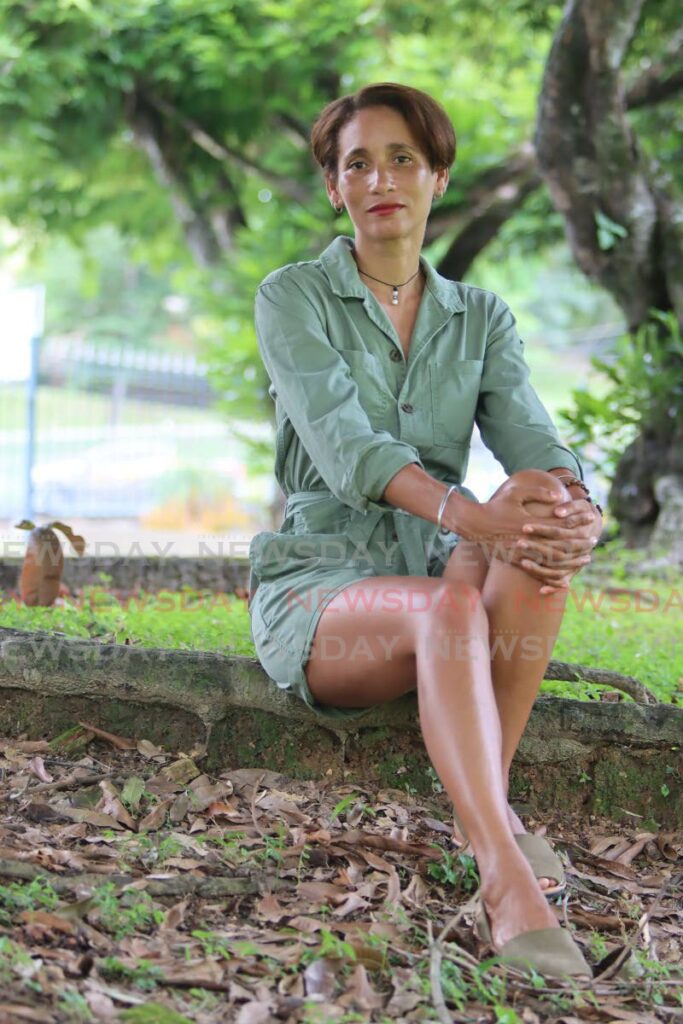Toni Smart speaks her truth - Trini among 3 who confront architect Sir David Adjaye on abuse

Chartered accountant and attorney Toni Smart experienced a traumatic betrayal in 2018, and instead of remaining quiet about it, she is telling her story in the hopes of affecting change.
In 2018, the now 47-year-old single mother moved to Accra, Ghana from Australia with her two sons to work with prestigious Ghanaian-British architect Sir David Adjaye.
According to Smart and two other former employees, all reportedly fair-skinned black single mothers in their forties at the time of the alleged abuse, he took advantage of them sexually and financially.
The women, dubbed "the FT3" after their stories were published under pseudonyms in the UK newspaper the Financial Times (FT) in July, said he disrupted their careers and caused them financial hardship and emotional distress, as he often did not pay their salaries on time and took his time over securing their work visas.
In addition to that distress, Smart, who featured in the FT article under the name Gene, said Adjaye, a friend of 12 years, tried to proposition and pressure her and another female employee into sex after the three had had dinner and drinks.
Smart left the room, claiming she was on her period, but the other woman, who said she was tipsy and felt emotionally and physically overpowered, stayed.

The article said Smart confronted Adjaye about his behaviour that night, but he brushed off her concerns. However she continued to deal with him in a cordial manner, as she needed an income and did not want to uproot her children.
Four months after the incident, she was fired and initially offered a US$10,000 cheque. Eventually a US$40,000 financial settlement was reached, which she received in May 2019, but out of spite, Smart refused to leave Ghana until the pandemic hit in 2020. She now lives in Martinique.
As part of the initial FT investigation, during which the women were vetted by lawyers and thoroughly investigated for about a year, reporters contacted Adjaye with questions on the alleged assaults, using the women’s chosen pseudonyms.
His UK lawyers sent a response, using the real names of the women, to the FT and the Ghanaian government. After the FT article came out in July, the letter was somehow leaked to the Ghanaian press, and the names of two of the three women were published.
Speaking to WMN in Maraval during a visit to TT last week, Smart said she believes this was done in Ghana because it is against media guidelines to use the names of accusers, victims and survivors in the UK.
“They clearly leaked the names to make sure that we were trolled, slut-shamed and survivor-blamed, which is pretty intimidating. When my name was leaked, security was a bit of a concern, so I had to shut down all my social media.
“He leaked the names in the Global South because it could go on the internet and it could go viral. Luckily, a Ghana publication has significantly less reach than the Financial Times.”
She said within 24 hours, the FT3 lawyers contacted lawyers in Ghana to see what protections the women had, and “hit back” with an investigation and article into the leak.
One of the Ghanaian articles was removed from the internet and the other was “sanitised,” with the names removed. However, the headline of the removed article named Smart as someone who “confronted” Adjaye and the link remained, even though clicking the link gets no results.

“I had some contacts in Ghana and I had assessed there was little to no risk to my life, so I reinstated my social media. I decided to leave my name out there because it became too hectic to take it down. This is how other victims were able to contact me.
“It was then I decided that, since my name is leaked, I have to take control of my narrative. I can't let somebody think they're going to investigate me or tell my story. And by that time, other survivors had come forward.”
Two of those survivors, Ngozi Olojede and Ewa Lenart, contacted her and made a public statement about Adjaye’s conduct towards them. She said their actions protected the FT3, as it showed they were not three women who got together and decided to “go after” Adjaye.
Smart said Adjaye tried to recruit her in 2013, but she was planning to have another child and intended to be “a very hands-on mother,” so she refused. When he approached her again in 2017, he offered the job of head of his legal and finance department at his “start-up” office in Ghana, and she accepted.
“Anybody who knows me knows that I've always wanted to live in Ghana. I wanted to go back to my roots, and he took advantage of that. What he does is, the type of person that he targets are these hyper-independent, educated women who want to come and make a change, who hear the call to black excellence, and are willing to come for less than market price to make a difference, to contribute to the cause.
“That's what he relies on. That's one of his grooming methods – your career is going to take off, you're going to be global.”
As a single mother, too, Smart expected to have a very good life in Ghana on a decent salary and believed it would have been a great experience for her children to live in Africa, to experience how others live, and expand their tolerance and empathy.
She told WMN she was not aware of it at the time, but Adjaye’s behaviour is an open secret in the architecture and art world, which is why she believes the women have not received much
pushback about their accusations.
She said initially she did not know what to expect and was nervous about revealing herself. Though it was not easy, she said she has only experienced total belief and support, and the architecture world has reached out to her, thanking her for her statements. She also has emotional support from other survivors and their lawyers.
Smart stressed that she and the other women got no financial compensation for telling their stories, and that was not their end goal. She said, for most of the women, the aim is to stop him from harming others, not just sexually and financially but also through his “toxic workplace.”
She personally does not want to see any more of his work in the Caribbean.
“And I certainly don't want to see him designing (transatlantic) slavery museums. The work is already done for Liverpool, and you can't undo it, because millions of dollars have been spent.
“Being Caribbean, I am a direct descendant of a transatlantic slave, so it turns my stomach that David Adjaye was developing this reputation to design and house parts of our history, when he himself is engaging in what I refer to as his form of modern-day slavery.
“Whether it falls under the ambit of the actual criminal charge of modern-day slavery, that's debatable.
"But I know him withholding my passport and that of my children, and not giving it back to me and not paying me on time, and relocating me from Australia to Ghana with my children after I did a three-month probation with them and signed a contract – I'm sorry, you feel trafficked.”
She said their bigger goal is to affect change in the continent of Africa so that the law would offer better protection for women and whistleblowers. She said the FT3 were advised to do this through changing African union law, which would then trickle down domestically across the continent. She knows it will not be easy and she may not live to see it, but they want to try, because she believes there is not enough focus on gender-based violence and women’s health in the Global South, including TT.

Smart said many survivors of gender-based violence do not come forward. Her advice to them is to tell at least three different kinds of people what they experienced so their stories can be corroborated later on if necessary.
"When something happens to you, tell somebody. If you can't tell the police and you can't tell the doctor, you have to make sure to tell three or four close friends. Because that's kind of what saved me. I told my community, I told my global 'coven,' I told my friends what happened.
"So when the Financial Times is corroborating (my) story, my friends can say, 'Toni told me right away what happened with Adjaye and she was in a mess.' And it's very difficult to do because there's shame, there's fear, anxiety, all these things that paralyse you."
She said the female sex is not as physically strong as men and so has developed intuition. So if something feels wrong or uncomfortable with an employer or supervisor, do not ignore it that feeling.
“Talk to somebody immediately about it. Don't ignore, you don't rationalise and say, 'But I'm gonna get paid really well. Let me stick out my contract a few more months,' because that's what happens to us. (We think) 'I have children and I don't want to look unstable. I can lose my job.'
"Even if you have to exit strategically and you have to endure, do not ignore your intuition and talk to somebody. Call a friend, call somebody who's counsel you respect, somebody who cares about you. Tell them. Do not sit in silence and endure. And do not ignore your intuition."
She added there is a possibility that formal action will be taken against Adjaye.
Smart believes her background was the foundation of her strength to fight this battle.
“I've always fought to live authentically. I think naturally, I'm predisposed to doing my own thing, which is difficult, because I'm not a bacchanalist per se, but I'm a disruptor."
She did her A-Levels at St Joseph’s Convent, Port of Spain, but attended Bishop Anstey Junior and High School. She said her grandmother was baptised by Anglican Bishop Arthur Henry Anstey and she is a proud Hilarian, as Bishop's is a school with a reputation for producing strong women.
She added that, like anyone who completes ten years of tertiary education, she has a certain amount of focus and discipline.
Smart’s family has a history in TT’s legal landscape. Her grandfather, Isidore Smart, was a former chief state solicitor, her father, Anthony Smart, is a former attorney general,
and her uncle and several cousins are also lawyers.
As a result, she always wanted to study law. But after her A-Levels, she won a scholarship for and attended Brock University in St Catharines, Ontario, Canada, where she graduated in 1999 with a degree in accounting and developed an interest in tax.
She then went to the London School of Economics, where she gained her LLB in 2003. In 2004 she became a chartered accountant in Canada and a barrister in London in 2005.
She returned to TT and from 2005-2009 she practised law with her family's firm, specialising in international tax law.
In 2013 she gained a masters II Economie et gestion (mention bien) from what was then L'Université des Antilles et de la Guyane in Martinique
She currently lectures there in the law and English departments, teaches high-school English for the Board of Education in Martinique, and occasionally lectures at a business school.
Smart also has plans someday to work on a PhD in a gender-studies topic at UWI. She said she always wanted to work in gender studies, but her personal life has “always been adventurous” and she wanted to focus on her sons. But now her children are older and they are supportive of her, so she is hoping to start a PhD soon.
About David Adjaye
Adjaye was awarded a knighthood by Queen Elizabeth II in 2017, the Gold Medal by the Royal Institute of British Architects in 2021, appointed to the UK Order of Merit in 2022 and was the recipient of the World Economic Forum's 27th Annual Crystal Award.
He designed the National Museum of African American History and Culture in Washington, DC, and the Abrahamic Family House in Abu Dhabi. He was commissioned to design the International Slavery Museum and Maritime Museum in Liverpool, the national cathedral in Accra, Ghana and a museum of West African art in Benin City, Nigeria.
He also served as the design architect for Hill House on Lady Chancellor Hill, Port of Spain, and in 2021, was announced as the lead designer of the Barbados Heritage District – memorial, museum and research institute on the impact of slavery.
Since the FT article, Adjaye has stepped back from several roles and projects, including his roles as a trustee of the Serpentine Galleries of contemporary art in London and design advocate for London mayor Sadiq Khan.
In addition, the East County Library project in the US state of Oregon disassociated itself from Adjaye Associates, and the UK's Department of Levelling Up, Housing and Communities said Adjaye would not be involved in the design of the Holocaust Memorial and Learning Centre in London until the accusations were resolved.
Adjaye continues to deny the allegations against him.


Comments
"Toni Smart speaks her truth – Trini among 3 who confront architect Sir David Adjaye on abuse"